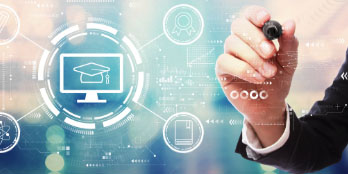Artificial Intelligence (AI) and Machine Learning (ML) are transforming universities and colleges by personalizing learning experiences and automating administrative tasks. AI-driven adaptive learning systems tailor educational content to individual student needs by analyzing performance data, ensuring personalized instruction. Intelligent tutoring systems provide one-on-one tutoring with real-time feedback, addressing each student’s strengths and weaknesses. Predictive analytics enable AI to analyze student performance, attendance, and engagement data to predict which students are at risk of falling behind, providing timely interventions. Additionally, AI recommends courses, resources, and activities based on students’ interests, past performance, and career goals, similar to how streaming services recommend content.
In terms of automating administrative tasks, AI significantly enhances efficiency. It automates the processing of applications during admissions and enrollment, sorting through data to identify suitable candidates and streamline the process. AI optimizes timetables for classes, exams, and events, efficiently using resources and reducing scheduling conflicts. Machine learning algorithms automate the grading of assignments and exams, providing instant feedback and reducing the workload for educators. Furthermore, AI-powered chatbots and virtual assistants handle routine inquiries, such as questions about course schedules, deadlines, and campus services, allowing administrative staff to focus on more complex tasks.
By integrating AI and ML, educational institutions can create more efficient, personalized, and responsive environments. These technologies enhance the overall learning experience by catering to individual student needs and improving operational efficiency through automation.



